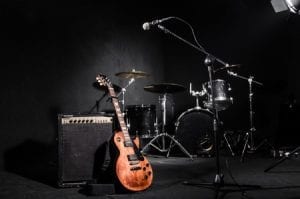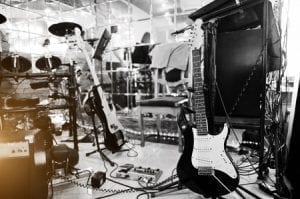Combing Through Music Licenses

Does working through the confusing topic of music licenses get exhausting? In this article were combing through music licenses asking questions like:
What are music licenses?
What types of music licenses are there and how are they different?
How are royalties calculated from these different music licenses?
Before we begin it’s important to understand the difference between musical compositions and sound recordings in order to understand which license you may need. Musical compositions and sound recordings are 2 separate copyrights. Musical compositions include lyrics, chords, melodies etc. and are the foundation of a song. For the purpose of this article, we refer to the person who created the music composition as the writer or copyright owner. These compositions are often called “publishing rights” and depending on the set up or deal, the copyright owner and publishers control these “publishing rights”.
Sound recordings include audio files and the fixed master recordings. These recordings are often called “master rights”. Recording artists and record labels control these "masters".
What are music licenses?
Music licensing is like renting your song out to another person.
It’s important to note that as an artist, if you grant a specific music license, you're NOT selling your music or a piece of your music. You still own your music, you're just allowing others to play your songs in exchange for payment, or royalties.
What types of music licenses are there and how are they different?

Public Performance Rights License
Please note:
You don’t need to license songs that you wrote yourself, but you can still earn a royalty when you play your OWN song in public.
If you are preparing to play another artist’s song, You should always confirm with the venue and a performance rights agency to see if you need to secure a public performance rights license before you do so.
In the USA, public performance rights are handled by 3 companies.
ASCAP - www.ascap.com
BMI – www.bmi.com
SESAC – www.seasac.com
Synchronization License
A synchronization license is where the copyright owner of the song grants the licensee permission to use their song and sync it with any type of visual media of a royalty fee. This is the most used license in the music industry.
Examples of these would be:
- movies
- commercials
- TV Shows
- video games
- You-tube Clips
- all other videos
Mechanical License
A mechanical license is where the copyright owner of a song grants permission for another to reproduce and/or distribute that song in exchange of a royalty fee. Anytime you produce a recording of a song you do not own or control, you need a mechanical license. A prime example of this would be if you decide to “cover” another artist’s song, and distribute that song on:
- CD
- vinyl
- digital download
- ringtone
Sampling License
A sampling license is where the copyright owner of a song grants permission for another to use a piece or a sample of their song in exchange of a royalty fee. For example if you want to use a section of another artist’s song to add to a new recording of your own, a sampling license should be obtained.
Examples of this could be:
- drum section
- guitar rift
- a chorus
- a verse

Print License
A print license is where the copyright owner of a song grants permission for another to print sheet music, notes or lyrics of that song in exchange of a royalty fee.
Each song needs an individual print license in order for it to be copied
For example if you want to:
- make photocopies of another artist’s musical composition
- make a new arrangement of an existing musical composition
- reprint lyrics or music for your own creation
You need to obtain a print license first. There is no set price range for these, but each license is unique and negotiated between the copyright owner and the license. In some cases you do have option of purchasing sheet music copies from the publisher directly or from sites such as:
Musicnotes.com or Sheetmusicplus.com
Master Recording License
A master recording license is where the copyright owner of a song or the record label (whoever owns the rights to that song) grants permission for another to use their original recording in exchange of a royalty fee. What’s the difference between a master recording license and a synchronization license? The master recording license grants permission to use a pre existing recording. For example, the voice of the original singer, such as compilation CD’s. Where the synchronization license grants permission to re record the song. For example, making a cover video of a famous song.





